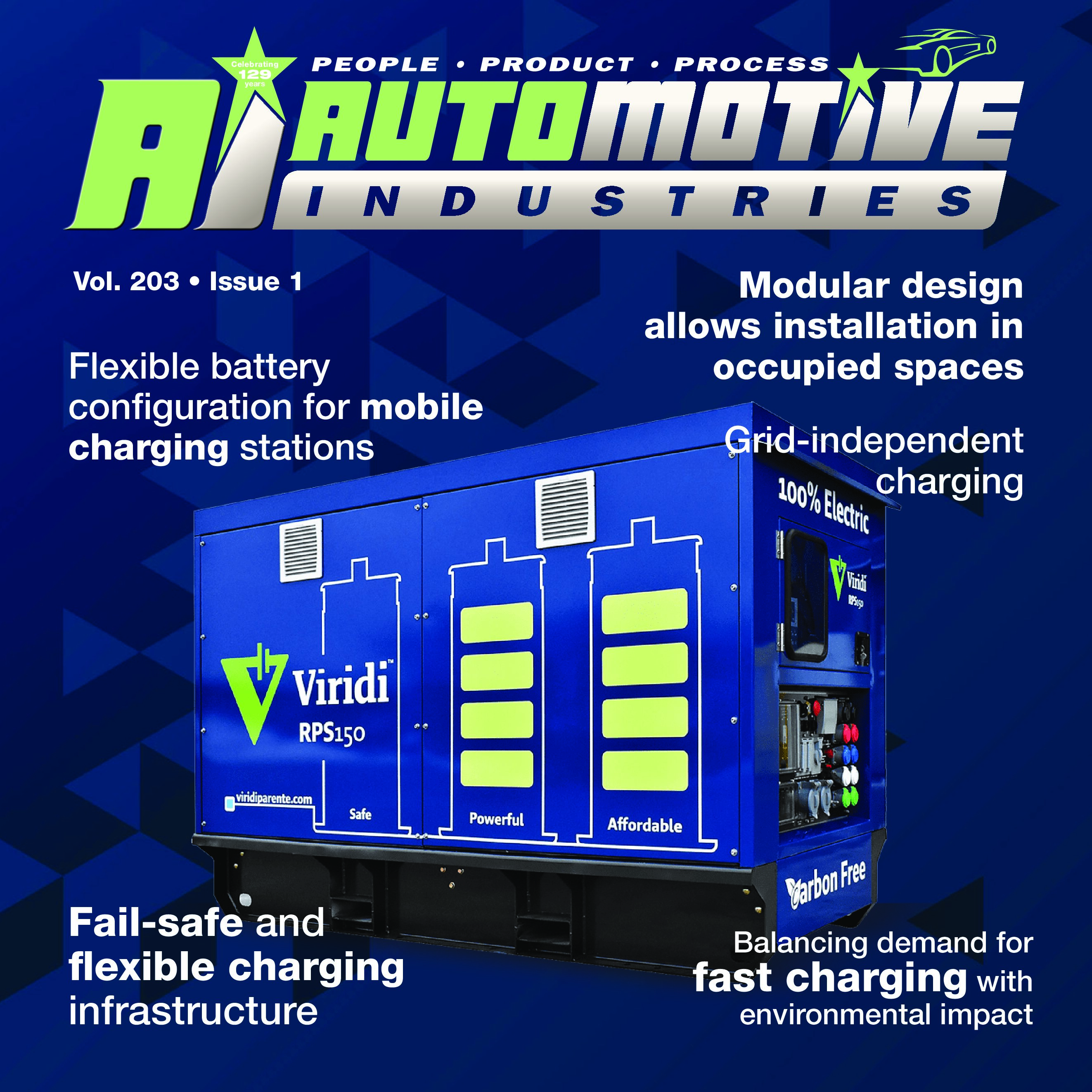
Electric vehicle (EV) battery technology is evolving fast as the industry overcomes the safety and sustainability challenges associated with EV battery technology and related battery energy storage systems (BESSs).
In an exclusive interview, Automotive Industries spoke with Jon M. Williams, the CEO of Viridi, a leading force in the automotive industry specializing in energy solutions.
Williams shared insights into Viridi’s commitment to safety standards, particularly in the context of 10-minute Electric Vehicle (EV) fast charging, and how their groundbreaking fail-safe lithium-ion battery technology is revolutionizing the industry.
The technology focuses on preventing the escalation of risks by tackling thermal runaway at the individual battery cell level. Utilizing physical barriers within the battery pack and a proprietary heat-sensitive coolant, Viridi ensures the containment of any potential failure, thereby averting catastrophic consequences.
One distinguishing factor of Viridi’s fail-safe design is its simplicity and efficiency, eliminating the need for complex, active thermal management systems.
The incorporation of an Industrial Internet of Things (IoT) monitoring system adds an extra layer of assurance by continuously tracking the battery pack’s performance in real-time.
Viridi’s involvement in commercial-scale energy storage systems is positioned to have a profound impact on the overall energy landscape.
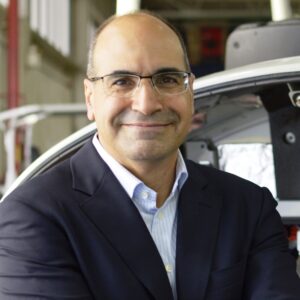
These systems contribute to the transition from fossil fuel-dominated sources to sustainable alternatives by facilitating the integration of renewable energy sources and promoting a decentralized energy ecosystem.
AI asked Williams what specific safety standards and regulations Viridi is advocating for in the context of 10-minute EV fast charging
Williams: Viridi strongly advocates for specific safety standards and regulations designed to mitigate the risk of lithium-ion battery fires, whether it be for 10-minute EV fast charging or other applications.
Viridi is calling for regulations mandating the incorporation of fail-safe antipropagation technology in all installed BESSs.
This technology plays a crucial role in preventing and containing thermal runaway events, significantly reducing the risk of fires and explosions.
Recognizing that these systems are often installed in or around occupied spaces or critical equipment, Viridi stresses the need for regulations addressing the unique safety concerns associated with such locations. This may involve additional safety features, emergency response protocols, and strict adherence to safety standards to protect individuals and property.
Viridi proposes clear and effective regulations stating that, in the event of a thermal incident, no smoke, fire, or off-gassing should be deemed acceptable or permitted.
This straightforward guideline ensures a swift and unequivocal response to any potential safety breach. Implementing these safety standards effectively requires collaboration among regulatory bodies, industry stakeholders, and technological innovators like Viridi.
Viridi encourages collaboration between industry experts, regulators, and technology developers to create standards that are practical, technologically feasible, and aligned with the dynamic landscape of electric vehicle technology,
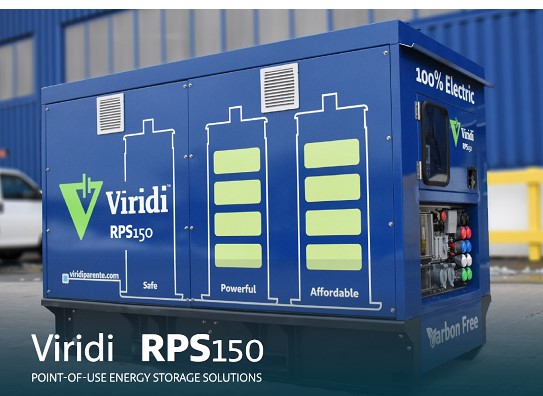
Emphasizing the importance of clear and concise regulations, leaving no room for ambiguity, Viridi’s well-defined standards make it easier for industry players to understand and implement the necessary safety measures.
This proactive approach helps identify and rectify any potential safety lapses promptly.
Viridi advocates for raising public awareness about the critical importance of these safety standards. Informed consumers can drive demand for adherence to safety regulations, creating a market-driven incentive for industry players to prioritize safety.
AI: Please elaborate on the fail-safe lithium-ion battery technology that Viridi deploys?
Williams: Viridi deploys a groundbreaking fail-safe lithium-ion battery technology designed to address the specific challenges associated with BESSs.
Typically, BESSs consist of numerous small battery cells stacked together, creating larger battery packs.
While the individual risk of failure for a single cell is low, the proximity of these cells can escalate the overall risk. In the event of a failure in one cell, a chain reaction can occur, leading to thermal runaway and potential catastrophic consequences for the entire BESS.
Viridi’s innovative approach, spearheaded by Dr. JR Linna, Chief Innovation Officer at Viridi, recognizes the need to tackle thermal runaway at the individual battery cell level.
Viridi begins with EV-grade battery cells and introduces physical barriers within the battery pack.
These barriers are strategically placed to prevent direct impacts from a failing cell on the surrounding cells. This structural design is a crucial first line of defense to contain any potential failure. To further enhance safety, Viridi incorporates a proprietary heat-sensitive coolant into the battery pack.
This coolant serves as an additional layer of protection by preventing the surrounding batteries from reaching temperatures that could lead to failure. This coolant acts as a safeguard, ensuring that even if one cell fails, the risk of propagation is minimized.
The combination of structural barriers and the proprietary coolant creates an anti-propagation design. This means that if a single cell were to fail, the design prevents the failure from spreading within the battery pack or BESS. This containment feature is crucial in averting the chain reaction that typically results in thermal runaway.
Viridi’s fail-safe design is notable for its simplicity and efficiency. Unlike some other systems that require active thermal management, Viridi’s approach eliminates the need for such complex systems. This not only reduces the potential points of failure but also contributes to the overall reliability of the technology.
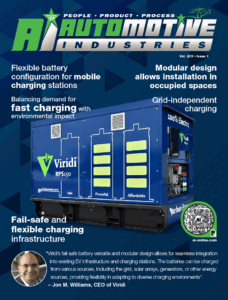
Viridi incorporates an Industrial IoT monitoring system that tracks the performance of the battery pack in real-time. This continuous monitoring ensures that any deviations from normal behavior are promptly detected, allowing for swift intervention if necessary.
The real-time monitoring adds an extra layer of assurance to the fail-safe design.
AI: How seamlessly can fail-safe battery technology be integrated into existing EV infrastructure and charging stations?
Williams: The integration of fail-safe battery technology into existing EV infrastructure and charging stations can be achieved with a high degree of seamlessness, thanks to Viridi’s versatile and modular approach. The technology is designed to offer adaptability to various environments and charging scenarios, and is supported by the following considerations:
- Viridi’s fail-safe battery versatile and modular design allows for seamless integration into existing EV infrastructure and charging stations. The batteries can be charged from various sources, including the grid, solar arrays, generators, or other energy sources, providing flexibility in adapting to diverse charging environments.
- The flexibility of configuring batteries in mobile or stationary arrays is a key feature. This adaptability enables EV charging providers to easily p
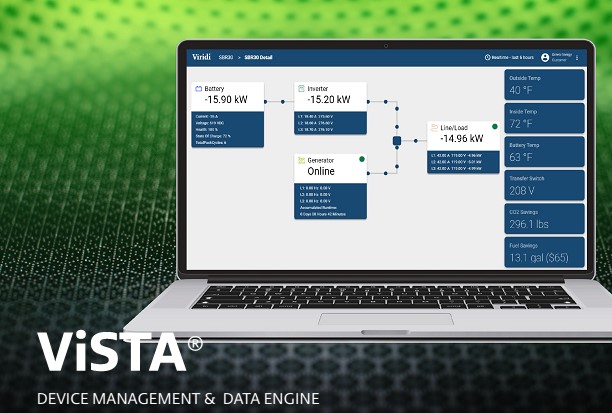
Viridi AI tools for monitoring and diagnostics can be connected to any device. osition, expand, or contract charging facilities in different locations based on demand. Mobile batteries are particularly useful in areas where the grid is unavailable or unstable, addressing concerns about the potential stranding of investment in EV charging assets.
- Viridi’s fail-safe technology addresses the challenge of new peak loads associated with additional EV chargers. By providing additional energy during peak EV charging periods, batteries contribute to a more stable and reliable energy supply for charging infrastructure. This helps to minimize the impact on a facility’s energy system, especially in areas where significant power demand for EV charging was not previously required.
- The modular and safe design of Viridi’s BESS allows for installation in or around occupied spaces and critical equipment. . In addition, the energy density of Viridi’s batteries allows for more energy storage in less space in comparison with other technologies. This is a crucial consideration, as it helps preserve real estate at EV charging sites and ensures that safety is maintained in locations where people park or frequent.
- Viridi’s fail-safe battery technology offers grid independence, allowing users to charge vehicles at times when the grid may not be available or stable. This capability is particularly valuable in remote locations or areas with unreliable grid infrastructure. Users can also benefit from charging flexibility, such as charging a vehicle during the day with power transmitted through the grid at night or vice versa. Of course, the BESSs can also be charged from solar or other renewable sources.
- Viridi’s BESS has been successfully deployed across the country in diverse settings, ranging from road races in remote locations to commuter vehicles for daily use. This showcases the adaptability of the technology to different environments and use cases.
AI: How does Viridi balance the push for fast charging battery technology with environmental concerns, especially regarding the production, usage, and disposal of lithium-ion batteries?
Williams: As the demand for EVs increases, Viridi actively balances the push for fast charging technology with strong considerations for environmental impacts throughout the entire lifecycle of lithium-ion batteries. Key initiatives in place to address concerns related to production, usage, and disposal of these batteries, include:
- Viridi is committed to ethical sourcing practices and conducts extensive due diligence on critical mineral sourcing and manufacturing processes. This diligence ensures that battery suppliers adhere to ethical and environmentally responsible practices. The company maintains a stringent ethical sourcing policy within its supply chain, prohibiting the use of forced labor and child labor.
- Viridi is dedicated to finding innovative solutions for end-of-life battery cells. To address concerns about future landfills filled with battery cells, Viridi has established a partnership with Li-Cycle, a recycling company specializing in recovering 95% of cell components. This collaboration enables the reuse of recovered materials in second-life applications, promoting a circular economy and minimizing waste.
- Viridi emphasizes the importance of evaluating global supply chain practices in the battery industry. The company advocates for a closed-loop supply chain, where materials are recycled and reused to reduce the environmental footprint. This proactive approach aligns with the goal of promoting positive environmental impacts throughout the battery manufacturing and disposal processes.
- Viridi’s commitment extends beyond its own operations to the broader movement for responsible practices within the battery industry. Viridi actively supports and promotes a sustainable and responsible approach to address environmental concerns associated with EVs and lithium-ion batteries.
AI: What is the potential impact of the Viridi commercial-scale lithium-ion-based storage systems?
Williams: Viridi’s involvement in revolutionizing energy storage with commercial-scale lithium-ion-based systems holds immense potential to reshape the overall energy landscape and significantly contribute to the transition from fossil fuel-dominated sources to more sustainable alternatives.
The imperative to decarbonize the energy sector, which currently accounts for approximately 75% of global greenhouse gases, underscores the need for transformative solutions. Viridi’s commercial-scale lithium-ion-based energy storage systems play a pivotal role in this transition by facilitating the integration of renewable energy sources, such as solar and wind, into the energy mix.
This enables a reduction in reliance on fossil fuel-dominated generation.
Viridi aligns with the vision of a future energy ecosystem characterized by decentralization. The traditional one-way system of centralized generation, transmission, and distribution is evolving into a more dynamic and distributed model.
Commercial-scale energy storage systems contribute to this shift by enabling both centralized and distributed generation. This approach reduces emissions, alleviates pressure on the grid, and enhances energy resilience at localized points of use.
BESS emerges as a linchpin in the transition to sustainable energy alternatives. Viridi’s systems allow for the efficient utilization of intermittent renewable sources like solar and wind by storing excess energy when generation exceeds demand and releasing stored energy during periods of high demand.
This load management capability not only optimizes energy consumption but also contributes to grid stability.
The increasing reliance on distributed generation and storage systems is becoming integral to the broader energy ecosystem.
Viridi anticipates that utility companies will increasingly incorporate these systems into their infrastructure. With the aid of artificial intelligence (AI) and the IoT, centralized control of batteries and demand-side management becomes more feasible, allowing utilities to enhance grid efficiency and reliability.
Viridi’s approach of installing commercial-scale BESS behind-the-meter offers a strategic advantage.
A 500 kWh BESS deployed across 100,000 businesses in a service area can be equivalent to adding 50 MWh of utility generation capacity. This deployment maximizes grid efficiency without the need for additional transmission lines, addressing the challenges associated with the slow and expensive construction of such infrastructure.
AI: Looking ahead, what trends do you foresee in the development of EV technology, especially in terms of battery advancements and fast-charging capabilities?
Williams: Several prominent trends are expected to shape the development of Electric Vehicle (EV) technology, including:
- Advancements in Battery Technology: Continuous improvement in battery technology is anticipated, with a focus on enhancing energy density, longevity, and overall performance. Innovations may include the use of new materials to improve safety and efficiency. Additionally, research efforts are likely to explore sustainable and eco-friendly approaches to battery production.
- Advanced Charging Infrastructure: The evolution of fast-charging infrastructure will continue to evolve, significantly reducing charging times. As a result, EV adoption among consumers will continue to rise.
- Innovations in Charging Technologies: Innovations in charging technologies, such as bidirectional charging and wireless charging, are expected to gain prominence.
- Integration of AI and Smart Charging: The integration of Artificial Intelligence (AI) and smart charging solutions is poised to play a crucial role. AI algorithms can optimize charging schedules based on energy demand, grid conditions, and cost considerations.
In the dynamic landscape of electric vehicles (EVs), Viridi is committed to maintaining a pioneering position by prioritizing safety, embracing technological advancements, and fostering collaborations with research organizations.
Recognizing the pivotal role of fast-charging capabilities in driving consumer adoption, Viridi’s BESSs are designed to alleviate range anxiety and enhance the overall convenience of EVs.
Through strategic partnerships with major national research organizations, Viridi not only supplements its internal innovation teams but also stays at the forefront of cutting-edge research and developments. The company’s product development strategy emphasizes safety, deployability and versatility, ensuring that its technology is economically feasible and adaptable to diverse environments.
Viridi’s unwavering commitment to superior performance, coupled with a focus on minimizing environmental impact, solidifies its leadership in advancing a sustainable and consumer-friendly electric vehicle ecosystem.

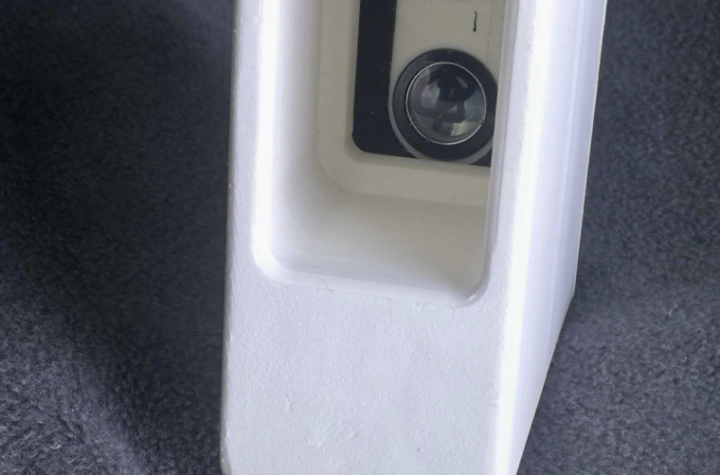


More Stories
Click Shield from MIKROE simplifies integration of Arduino Portenta with over 1600 Click boards
Optimizing Mid-Power Silicon MOSFETs for Automotive Applications
Paolo Pininfarina named the 2024 Laureate of The American Prize for Design